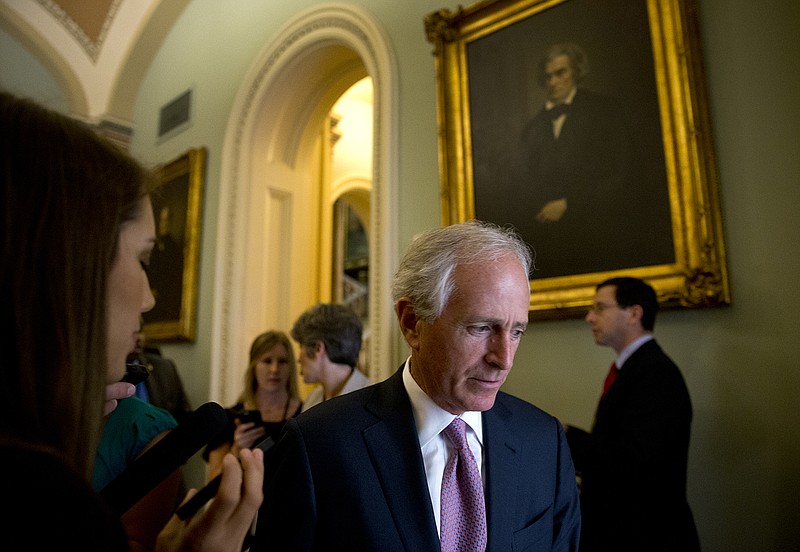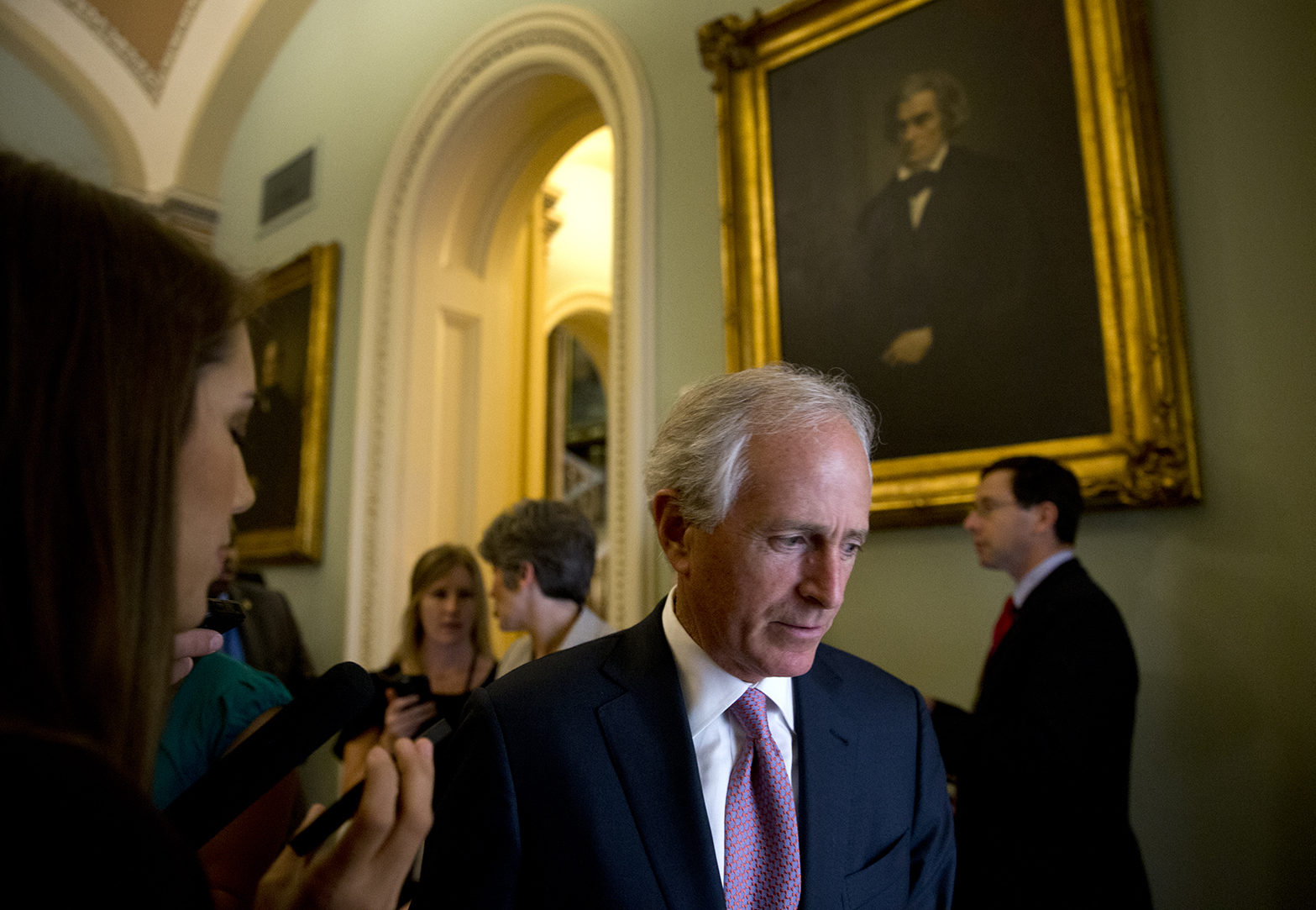U.S. Sen. Bob Corker, R-Tenn., expressed skepticism Tuesday that President Barack Obama would follow through on his threat to veto any effort by Congress to block the nuclear deal struck between Iran and world powers, while other Tennessee lawmakers reacted to the day-old deal with everything from tepid wait-and-see statements to outright hostility.
Read more
* Iran deal bad for U.S., Middle East * Give Iran deal a hard look and serious debate * Iran nuclear deal: Fine 'new chapter' or 'historic mistake'?
The deal, finalized Tuesday, aims to curtail Iran's nuclear program in exchange for billions of dollars in relief from international sanctions. Officials from the United States, China, France, Russia, the United Kingdom and Germany reached the agreement with Iran after almost two years of negotiations.
But because of a bill Corker, chairman of the powerful Senate Foreign Relations Committee, championed earlier this year, Congress will have 60 days to review and potentially reject the deal, although Obama vowed Tuesday to veto any such rejection.
It's a threat Corker's heard before. When Corker's review bill was up for debate, Obama also threatened to veto that, the senator said, but dropped that threat when it became clear Congress would pass the bill.
"He knew he'd be overrun, so he lifted his veto threat an hour-and-a-half before our committee vote," Corker said. "I don't want to prejudge this, but I think the president's veto threat - he's done it before."
The senator, who is now in a crucial position to guide the political response to the deal, shied away from any definitive statements on the agreement itself, and instead said that he and his staff hadn't had a chance to carefully review it. He said he will pull in physicists and nonpartisan research institutions to examine the technical details of the deal, but added that he is deeply skeptical.
"We have moved from a goal of dismantling Iran's nuclear capabilities to managing its proliferation," Corker said.
Corker raised questions about how the international community would verify that Iran honors the agreement, how and when the sanctions would be lifted, and what would happen to the country's ballistic missile program. He did not know Tuesday how the deal addressed those issues.
"I think Congress should go through this in a thoughtful way, and if people believe this agreement is something that will keep Iran from getting a nuclear weapon they should support this," he said. "If people think, on the other hand, that is not the case and in some respects it may even pave the way for them to have a nuclear weapon, then obviously they should vote against this."
Obama said Tuesday that the deal requires Iran to dispose of 98 percent of its stockpiled enriched uranium - the type used in nuclear bombs - and it will shut down two-thirds of its centrifuges, the equipment used to create enriched uranium.
"To put that in perspective, Iran currently has a stockpile that could produce up to 10 nuclear weapons," Obama said. "Because of this deal, that stockpile will be reduced to a fraction of what would be required for a single weapon. This stockpile limitation will last for 15 years."
The possible standoff between lawmakers and Obama puts Corker into the national spotlight in a way he hasn't been before, said Bruce Oppenheimer, a political science professor at Vanderbilt University.
"His position is vital in two ways," Oppenheimer said. "One is, is he someone the [Obama] administration can deal with? And second, can he get the assurances that he needs and signal to a handful of Republicans that it is OK not to oppose the agreement? Can he take those people who want to go after the administration hard on this from his side of the aisle and not turn it into something that looks partisan?"
Some of Corker's colleagues, including Tennessee Republican U.S. Reps. Scott DesJarlais and Marsha Blackburn, have already come out against the nuclear agreement.
"It doesn't really deter anything, and it allows [Iran] to continue to promote their brand of terrorism in the Middle East," DesJarlais, who represents Tennessee's 4th District, said. "It doesn't seem there are many people outside the Obama administration that seem to be in favor of this. It makes it hard for me to understand why this deal was struck, besides that the president thinks it looks good on his resume."
Others, like 3rd District U.S. Rep. Chuck Fleischmann and U.S. Sen. Lamar Alexander, both Republicans, were more measured in their responses, calling for time and a thorough review before condemning or endorsing the agreement.
"I plan to review this proposed deal in detail and determine if it will leave Iran with a clean path to a nuclear weapon," Fleischmann said in a statement. "A nuclear-armed Iran poses a significant threat it is simply a risk we cannot take, and I will absolutely not support the deal if it compromises American security."
The 60-day congressional review will begin as soon as members of Congress receive all the paperwork of the deal, Corker said. He expects Congress to vote on the agreement sometime in September.
Contact staff writer Shelly Bradbury at 423-757-6525 or sbradbury@timesfreepress.com with tips or story ideas.

